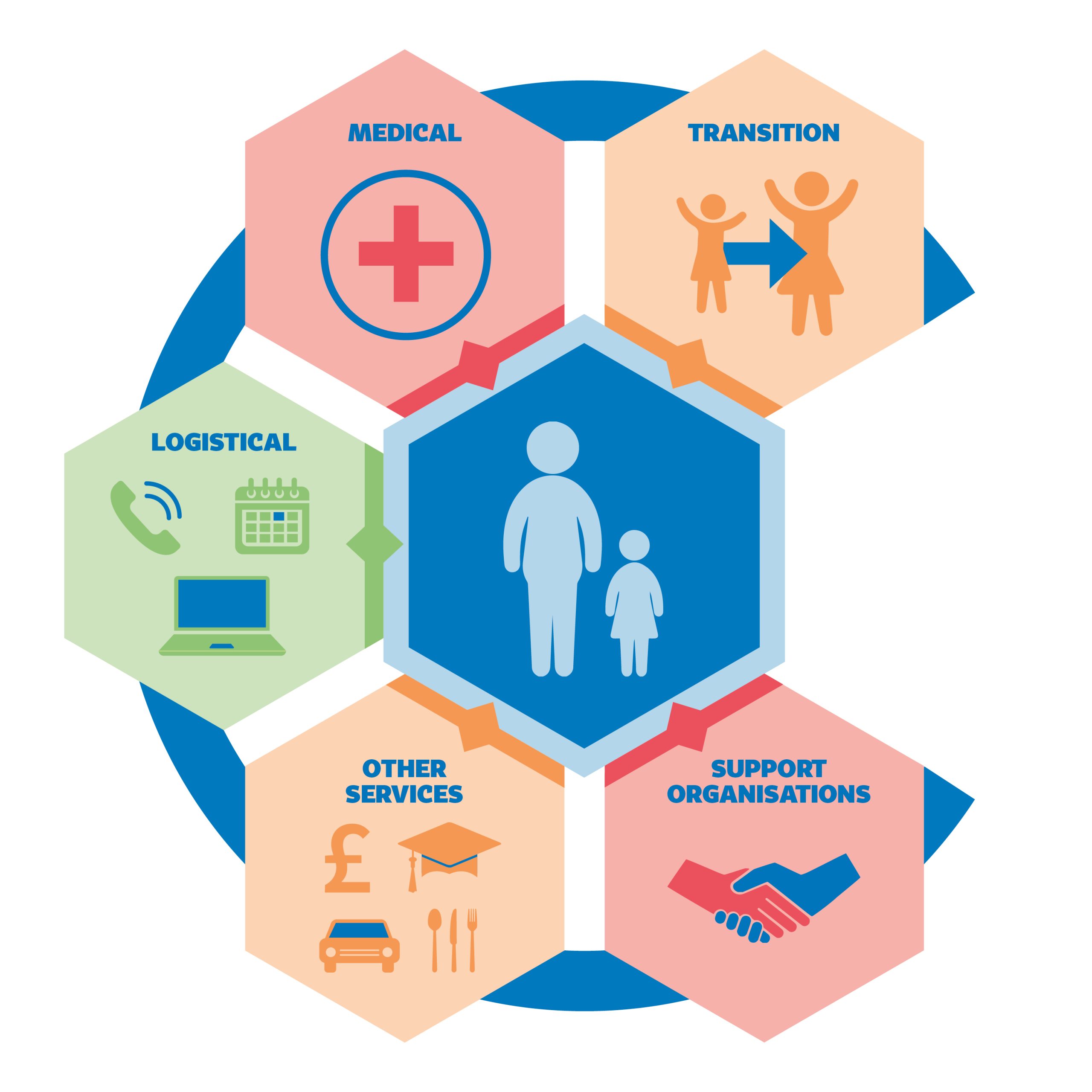The report shows the value of care coordination can be seen across five themes.
- Coordinating complex medical care
- Delivering well-organised logistical support
- Assisting an effective transition from children’s services to adult services
- Bridging the gap between healthcare and other services, such as education and benefits
- Integrating support from rare condition charities and support groups


